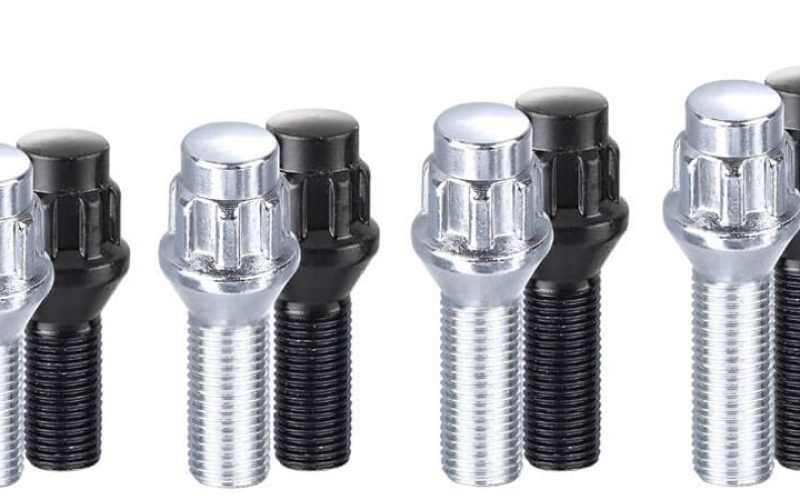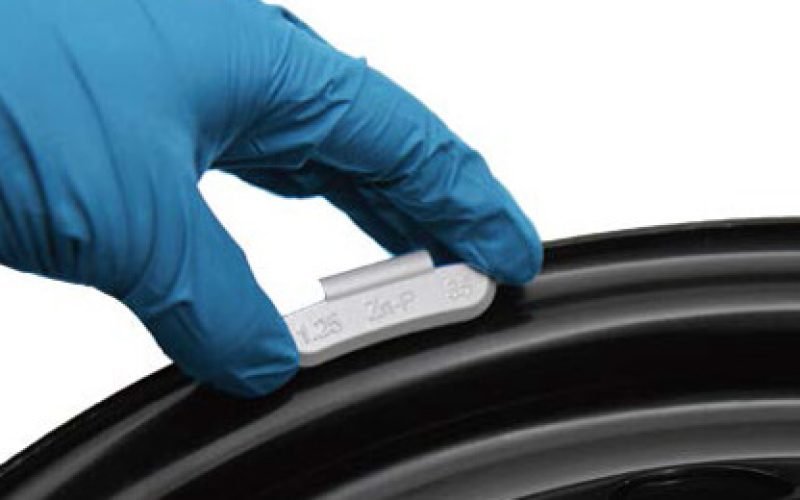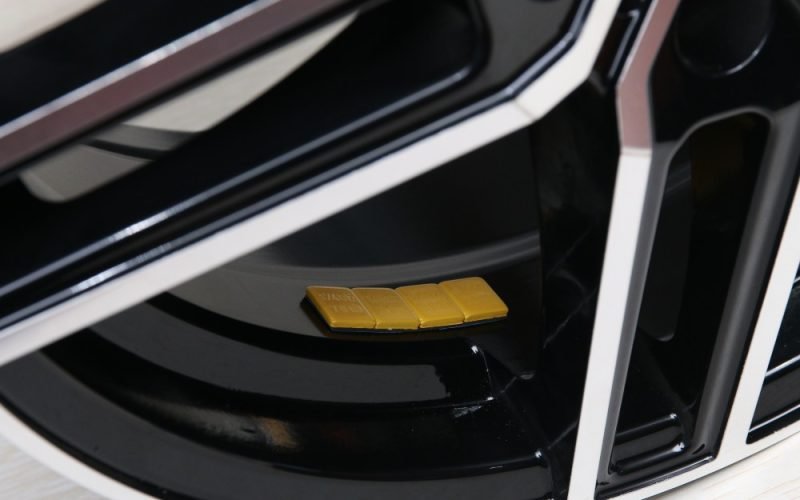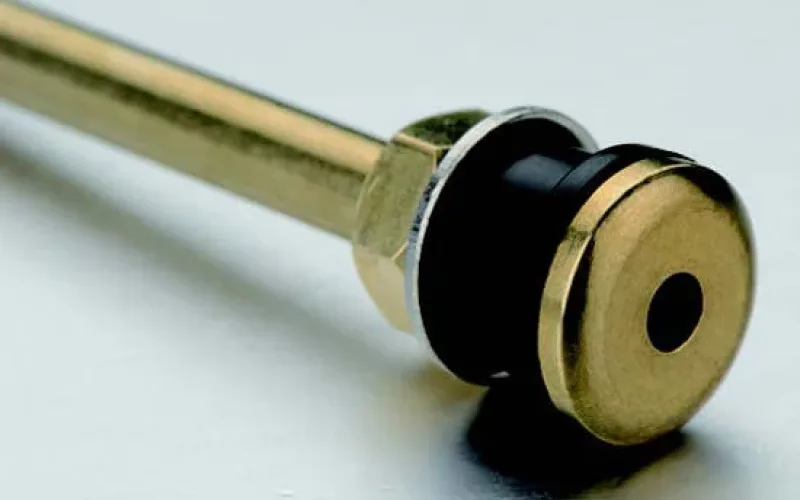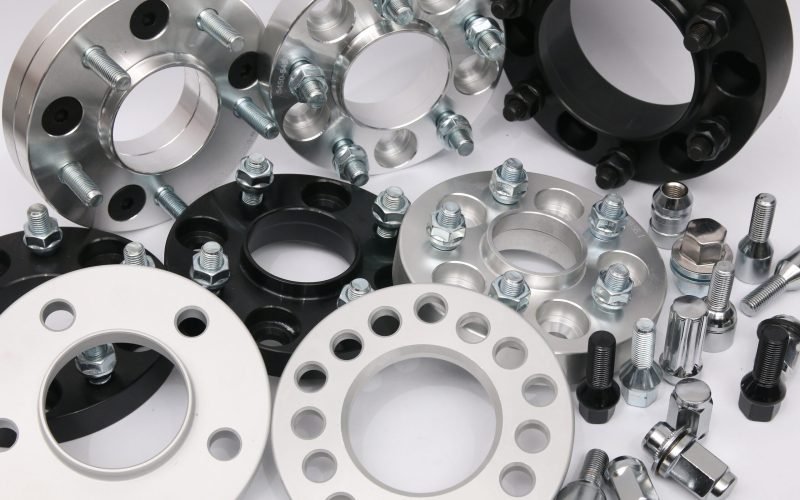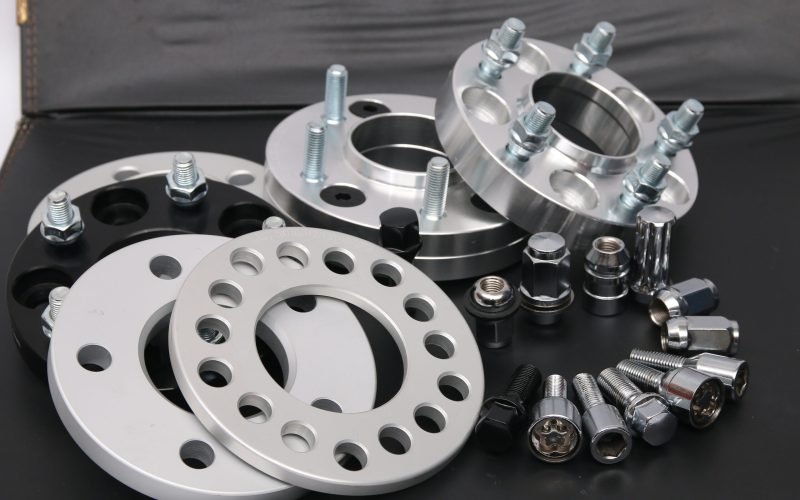

admin1
May 9, 2025
The Role of Steel Wheel Weights in Achieving Perfect Tire Balance
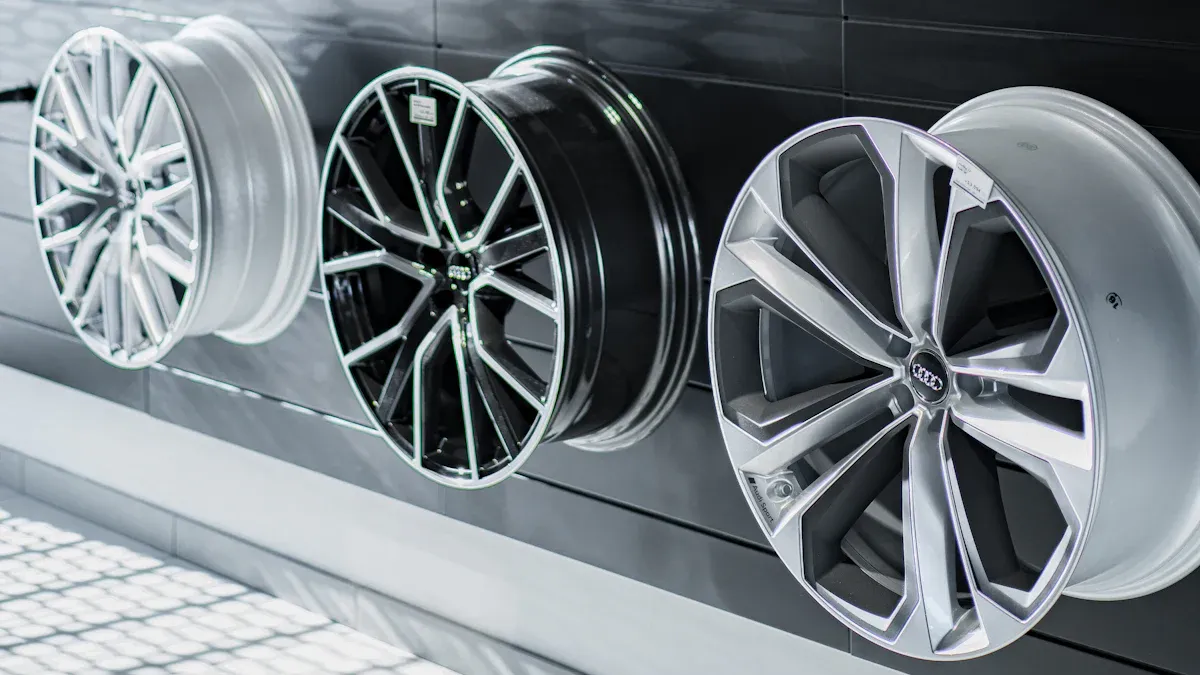
When your tires roll smoothly, it’s no coincidence—it’s the result of precise tire balancing enabled by wheel weights. Steel wheel weights play a pivotal role in this process. Their unmatched durability ensures they withstand the rigors of daily driving without losing effectiveness. With steel, you get a material that’s environmentally friendly and highly precise, making it ideal for achieving perfect tire balance. Choosing steel wheel weights isn’t just a decision; it’s an investment in better performance, safety, and sustainability for your vehicle.
Understanding Wheel Weights
The Purpose of Wheel Weights
Wheel weights are vital for maintaining your vehicle’s stability and comfort. They counteract imbalances in tire and wheel assemblies, ensuring smooth rotation and preventing vibrations. Without proper wheel weights, your tires can wear unevenly, leading to costly replacements and compromised safety. These small but powerful components also reduce rolling resistance, which helps improve fuel efficiency. By using wheel weights, you protect your vehicle’s performance and extend the lifespan of its tires.
How Wheel Weights Work in Tire Balancing
When your tires rotate, even the slightest imbalance can cause noticeable vibrations. Wheel weights solve this issue by evenly distributing the mass of the wheel around its axis of rotation. Technicians strategically place these weights to correct radial force variation, which refers to the fluctuations in force experienced by a tire’s rotating axis under load. This process minimizes vibrations and ensures a smoother ride. Depending on your vehicle and wheel type, technicians may use clip-on weights for a secure fit or adhesive weights for a sleeker appearance. Both types play a crucial role in achieving perfect wheel balance, enhancing your driving experience.
Types of Wheel Weights in the Market
The market offers two main types of wheel weights: clip-on and adhesive. Clip-on weights are popular for their durability and ease of installation. They attach securely to the wheel rim, making them ideal for vehicles that face rugged conditions. Adhesive weights, on the other hand, provide a cleaner look and are often used for alloy wheels. They stick directly to the wheel surface, offering flexibility in placement. Both types cater to different needs, ensuring that you can find the perfect solution for your vehicle. The choice between these types depends on your preferences and the specific requirements of your wheels.
Advantages of Steel Wheel Weights
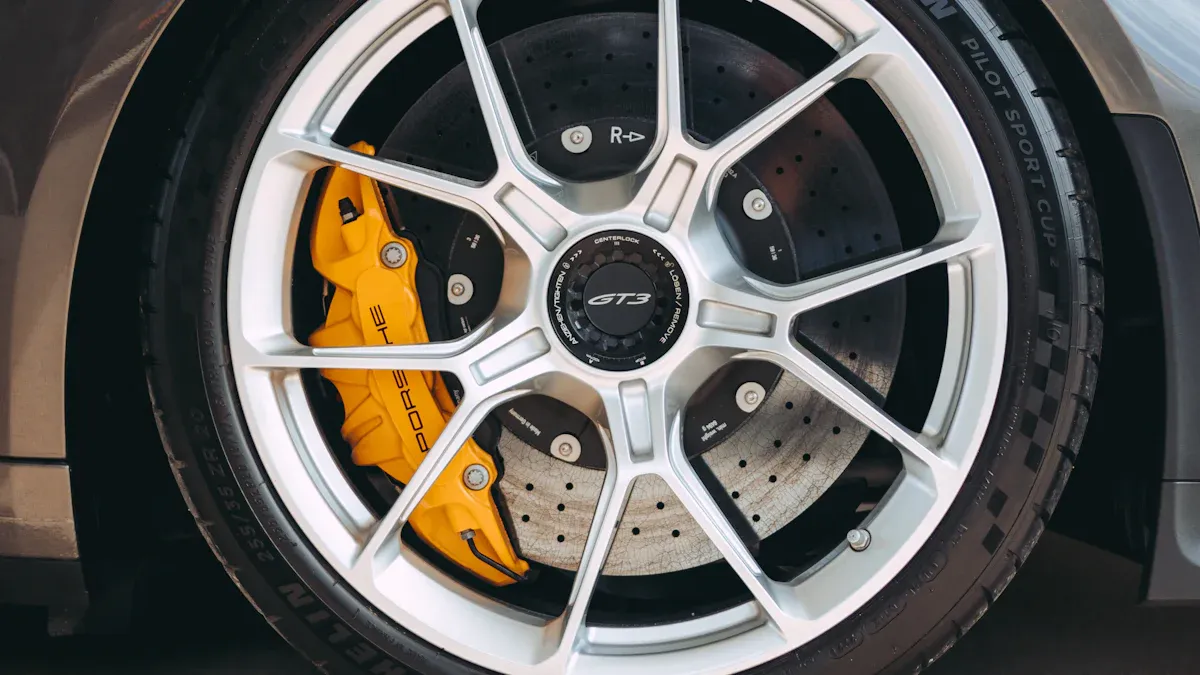
Durability and Longevity
Steel wheel weights are built to last. Their robust construction ensures they can endure the toughest road conditions without losing their effectiveness. Unlike other materials, steel resists corrosion and wear, making it a reliable choice for long-term use. When you choose steel, you’re investing in a product that maintains its performance over time, even in harsh environments.
Balanced wheels, supported by durable steel weights, can extend the lifespan of your tires by up to 40%. This means fewer replacements and lower maintenance costs for you. Additionally, balanced wheels reduce vibrations by as much as 50%, which minimizes wear on your tires and enhances your driving experience. Ignoring wheel weights can lead to premature tire damage and reduced traction, but steel ensures your wheels stay balanced and your tires last longer.
The growing automotive industry highlights the importance of durability. With approximately 80 million passenger cars produced globally in 2021, the demand for reliable wheel weights has never been higher. Steel meets this demand with unmatched strength and longevity, making it the preferred choice for vehicle owners worldwide.
Environmental Benefits of Steel
Steel is not just strong; it’s also sustainable. As a recyclable material, steel aligns with the growing consumer preference for eco-friendly products. The global steel recycling market, valued at around USD 290 billion in 2022, reflects the increasing demand for sustainable solutions. By choosing steel wheel weights, you contribute to reducing waste and promoting a greener planet.
Unlike lead, which poses environmental and health risks, steel offers a safer alternative. Its recyclability ensures that old weights can be repurposed, reducing the need for new raw materials. This makes steel an environmentally responsible choice for wheel weights. When you opt for steel, you’re not only improving your vehicle’s performance but also supporting sustainability efforts.
Cost-Effectiveness Compared to Other Materials
Steel wheel weights provide excellent value for money. Their durability and corrosion resistance mean they last longer than alternatives like lead or zinc. This longevity translates to fewer replacements and lower long-term costs for you. While the initial investment in steel may be slightly higher, its extended lifespan makes it a cost-effective choice in the long run.
Environmental concerns have also made steel a more attractive option. Lead, once a common material for wheel weights, is now less favored due to its harmful effects on the environment. Steel, on the other hand, aligns with sustainability trends, offering both performance and eco-friendliness.
Technological advancements in manufacturing have further enhanced the precision of steel wheel weights. This precision ensures better tire balance, reducing wear and improving fuel efficiency. By choosing steel, you’re not just saving money—you’re also investing in a product that delivers superior performance and aligns with modern automotive standards.
Steel Wheel Weights vs. Other Materials
Steel vs. Lead: Safety and Sustainability
When comparing steel to lead, safety and sustainability take center stage. Lead wheel weights have faced increasing scrutiny due to their environmental and health risks. Many countries have implemented strict regulations to limit or ban their use, making steel a safer and more compliant alternative. Steel wheel weights offer low toxicity and minimal environmental impact, ensuring you can balance your tires without compromising the planet’s health.
Steel also excels in durability. Unlike lead, which can deform under pressure, steel maintains its shape and effectiveness even in demanding conditions. This reliability ensures your wheels stay balanced longer, reducing the need for frequent replacements. By choosing steel, you align with industry standards and contribute to a safer, greener future.
| Evidence Type | Details |
|---|---|
| Regulatory Issues | Lead weights face regulatory challenges, making steel a more compliant choice. |
| Cost Comparison | Steel is currently less expensive than lead and zinc, impacting the overall cost of wheel weights. |
| Performance | Steel is noted as a better alternative to lead for wheel weight materials, ensuring better performance. |
Steel vs. Zinc: Performance and Density
Steel and zinc are both popular choices for wheel weights, but steel stands out in several key areas. Steel weights provide superior balancing due to their density and strength, ensuring smoother rides and better tire performance. Zinc weights, while adequate for most vehicles, lack the same level of precision and reliability.
Durability is another factor where steel shines. Coated steel weights resist corrosion and wear, making them ideal for long-term use. Zinc weights also resist corrosion effectively, but their higher cost can make them less appealing for budget-conscious vehicle owners.
Steel’s affordability and eco-friendly properties further enhance its appeal. While zinc weights contribute to sustainability, steel offers a lower-cost solution with equally minimal environmental impact. By choosing steel, you get a product that balances performance, durability, and cost-effectiveness.
- Performance: Steel weights provide reliable balancing due to their density and strength, while zinc weights offer adequate balancing for most vehicles.
- Durability: Steel weights are known for their durability and longevity, especially when coated, whereas zinc weights resist corrosion effectively.
- Cost: Steel weights are generally more affordable, while zinc weights are pricier due to their eco-friendly properties.
- Environmental Impact: Steel weights have low toxicity and minimal environmental impact, making them a preferred alternative to lead, while zinc weights also contribute to eco-friendliness.
Why Steel Is the Industry Standard
Steel has earned its place as the industry standard for wheel weights due to its unmatched combination of performance, affordability, and sustainability. Regulatory challenges surrounding lead have pushed manufacturers to adopt safer alternatives, and steel has emerged as the top choice. Its compliance with environmental regulations ensures you can use steel weights without worrying about legal or ethical concerns.
Cost is another reason steel dominates the market. Compared to lead and zinc, steel offers a more affordable solution without sacrificing quality. This cost advantage makes steel wheel weights accessible to a broader range of vehicle owners, from everyday drivers to commercial fleets.
The automotive industry values performance, and steel delivers. Its density ensures precise tire balancing, reducing vibrations and improving driving comfort. Steel’s durability also minimizes wear and tear, extending the lifespan of your tires and lowering maintenance costs. These benefits make steel the preferred material for wheel weights across the globe.
| Wheel Type | Market Share | Advantages |
|---|---|---|
| Casting Wheels | 65% | Cost-effective, efficient mass production |
| Forged Wheels | 30% | Superior strength, lightweight for heavy-duty |
| Alloy Wheels | N/A | Higher cost, less durable compared to steel |
Steel’s affordability and durability make it the superior choice for many applications in the automotive sector. When you choose steel wheel weights, you’re investing in a product that meets industry benchmarks and delivers reliable performance.
How Steel Wheel Weights Improve Vehicle Performance
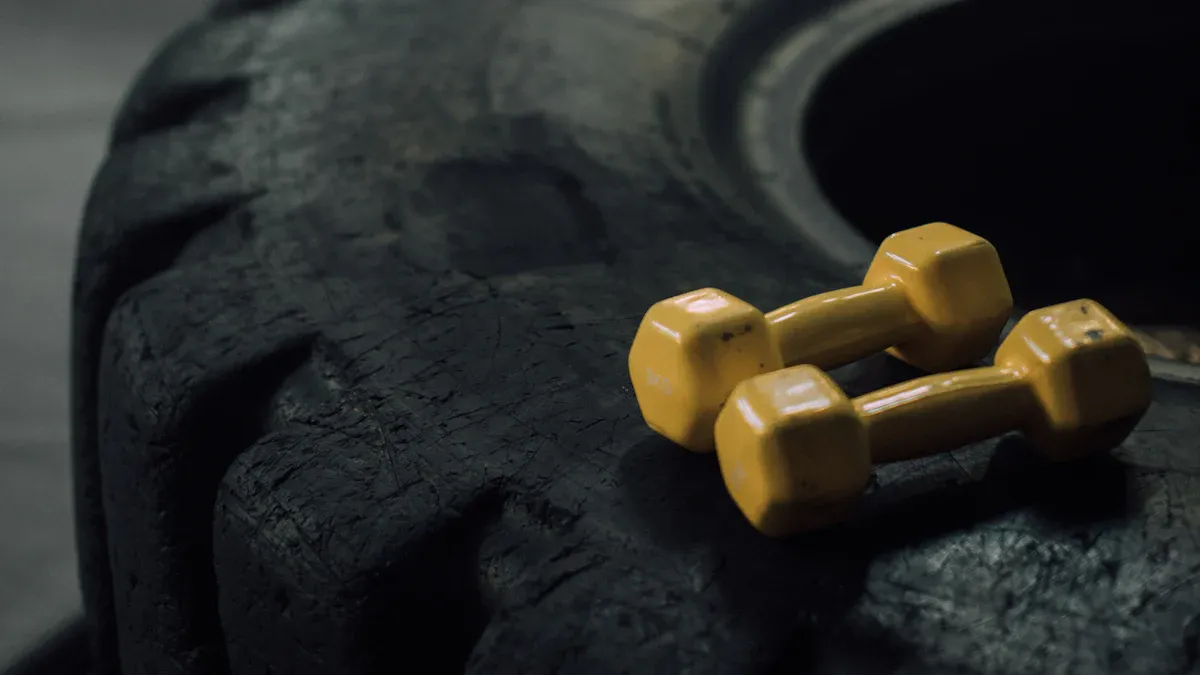
Enhancing Driving Comfort and Stability
Steel wheel weights play a crucial role in making your driving experience smoother and more stable. By evenly distributing weight across your tires, they reduce vibrations that can make your ride uncomfortable. This even distribution minimizes oscillations during tire rotation, which not only enhances comfort but also protects your vehicle’s suspension system from unnecessary wear.
Properly balanced wheels also improve traction and grip, especially on wet or uneven roads. This ensures your tires maintain consistent contact with the road, even during sharp turns or sudden maneuvers. For example, studies show that weighted wheels improve cornering stability by maintaining better tire alignment under load. In semi-trucks, proper load balancing can even reduce fuel consumption by up to 20%, highlighting the efficiency benefits of steel wheel weights.
| Wheel Type | Average Lap Time | Best Lap Time |
|---|---|---|
| Heavy Masitaly | 58.025 seconds | 57.685 seconds |
| Lightweight Volk TE37 | 56.995 seconds | 56.575 seconds |
| Difference | +0.31 seconds | +0.46 seconds |
This table demonstrates how lighter, well-balanced wheels can enhance performance, reducing lap times and improving overall stability.
Impact on Fuel Efficiency and Tire Longevity
Balanced tires supported by steel wheel weights can significantly improve your vehicle’s fuel efficiency. When your tires rotate evenly, they encounter less rolling resistance, which means your engine doesn’t have to work as hard. This translates to better mileage and lower fuel costs over time.
Additionally, balanced wheels prevent uneven tire wear. Uneven wear can shorten the lifespan of your tires, leading to frequent replacements and higher maintenance costs. With steel wheel weights, you can extend the life of your tires by up to 40%. This not only saves you money but also reduces waste, making it an environmentally friendly choice.
Contribution to Overall Vehicle Safety
Safety is paramount when it comes to driving, and steel wheel weights contribute significantly to it. They ensure your tires remain balanced, which improves handling and reduces the risk of accidents caused by uneven tire wear or poor traction. Weighted wheels also enhance stability during high-speed cornering, ensuring your vehicle stays under control even in challenging conditions.
| Key Aspect | Description |
|---|---|
| Role of Steel Wheels | Crucial for ensuring human safety in vehicles. |
| Testing Method | Cornering tests at the vehicle level to validate performance under varying loads. |
| Design Features | Optimization of vent hole shape and hat depth to enhance wheel performance and safety. |
| Predictive Capability | Correlating virtual finite element analysis (FEA) with physical tests to improve design predictability. |
| Safety Enhancement | Improved design leads to wheels that can safely endure high cornering loads, enhancing overall vehicle safety. |
This table highlights how steel wheels, when paired with steel wheel weights, are designed to endure high loads and improve safety. By investing in steel wheel weights, you’re not just enhancing performance—you’re prioritizing your safety and that of your passengers.
Maintaining Proper Tire Balance
Signs of Imbalance in Tires
Tire imbalance can cause noticeable issues while driving. You might feel vibrations in the steering wheel, seat, or floorboard, especially at higher speeds. Uneven tire wear is another common sign. If one side of your tire tread looks more worn than the other, it’s a clear indicator of imbalance. Additionally, your vehicle may pull to one side or produce unusual noises during motion.
Diagnosing tire imbalance requires precision. Proper mounting and balancing techniques are essential to identify the root cause. Diagnostic balancers measure vibrations and pinpoint the problem areas. Often, centering issues are the main culprit, so technicians must verify proper centering during every assembly. Regular calibration of balancing equipment ensures accurate results, making it easier to detect and resolve imbalances effectively.
Importance of Regular Inspections
Routine tire balance inspections are crucial for maintaining your vehicle’s performance and safety. Balanced tires wear evenly, which extends their lifespan and saves you money on replacements. They also reduce rolling resistance, improving fuel efficiency and lowering your fuel costs.
Safety is another critical reason to prioritize regular inspections. Properly balanced tires provide better traction, handling, and braking performance. This is especially important during sudden stops or on slippery roads. By scheduling regular checks, you ensure your tires remain in optimal condition, enhancing both your driving experience and overall safety.
Choosing the Right Steel Wheel Weights
Selecting the right steel wheel weights is key to achieving proper wheel balancing. Steel weights offer unmatched durability and precision, making them ideal for long-term use. They resist corrosion and maintain their effectiveness even in harsh conditions. When choosing steel weights, consider factors like your vehicle type, wheel design, and driving conditions. Clip-on weights work well for rugged environments, while adhesive weights are perfect for alloy wheels with a sleek finish.
Investing in high-quality steel wheel weights ensures your tires stay balanced, reducing vibrations and improving your vehicle’s performance. With steel, you’re not just choosing a product—you’re making a smart decision for safety, efficiency, and sustainability.
Steel wheel weights offer unmatched benefits for tire balancing. Their durability ensures long-term performance, while their precision enhances your vehicle’s safety and fuel efficiency. Choosing steel wheel weights reduces maintenance costs and supports sustainability efforts. By investing in high-quality steel wheel weights, you improve your driving experience and contribute to a greener planet.
Make the smart choice today—opt for steel wheel weights to enjoy reliable performance and peace of mind on every journey.
FAQ
1. Why should you choose steel wheel weights over other materials?
Steel wheel weights offer unmatched durability, precision, and eco-friendliness. They resist corrosion, last longer, and align with sustainability efforts. By choosing steel, you reduce maintenance costs and improve tire performance. Steel is the industry standard for reliable, long-term tire balancing.
2. Are steel wheel weights suitable for all types of vehicles?
Yes, steel wheel weights work for passenger cars, trucks, and commercial fleets. Their versatility ensures compatibility with various wheel designs, including alloy and steel rims. Whether you drive daily or under rugged conditions, steel weights deliver consistent performance.
3. How do steel wheel weights improve fuel efficiency?
Balanced tires reduce rolling resistance, allowing your engine to work less. Steel wheel weights ensure precise tire balance, which improves mileage and lowers fuel consumption. This saves you money and reduces your carbon footprint.
4. Can steel wheel weights withstand harsh weather conditions?
Absolutely! Steel wheel weights resist corrosion and wear, even in extreme climates. Their robust construction ensures they maintain effectiveness in rain, snow, or heat. You can rely on steel weights for consistent performance year-round.
5. How often should you inspect your tire balance?
Regular inspections every 6,000 to 8,000 miles are recommended. Balanced tires improve safety, extend tire life, and enhance driving comfort. If you notice vibrations or uneven wear, schedule a check immediately to avoid costly repairs.
